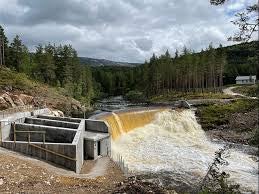The International Renewable Energy Agency (IRENA) has held its second meeting of the Collaborative Framework on Hydropower, advancing the initial discussion from June 2020. With more than 100 attendees from 49 Members and States in Accession, the virtual meeting session was moderated by H.E. Mr. Jean-Christophe Fueeg, Head of International Energy Affairs at the Federal Department of the Environment, Transport, Energy and Communications of Switzerland.
The two-hour session witnessed a high level of engagement to take advantage of the knowledge and expertise that exists within the Agency and its global Membership, IRENA said.
Providing the opening remarks, IRENA’s Director-General Francesco La Camera said: “As an enabler for integrating higher shares of renewable energy into power systems, hydropower is set to play an important role in the energy transition and will be critical to the decarbonisation of economies. Promoting the continued deployment of hydropower has been, and remains, an important part of IRENA’s work.”
IRENA launched the Collaborative Framework on Hydropower to address pressing challenges and seize potential opportunities. During its kick-off meeting in June, Members agreed on the thematic scope of the Collaborative Framework, including the need to ensure the continued development of hydropower in a sustainable manner, the relevance of hydropower as flexibility provider and enabler for the integration of high shares of variable renewables (VRE), the need for adequate remuneration of services through business models and market structures and the role of hydropower in climate resilience. Other topics of interest included innovative solutions and operation and maintenance practices.
Member countries also decided to bring in hydropower stakeholders from the public and private sector as well as intergovernmental and non-governmental actors. In response, the International Hydropower Association (IHA) and the World Bank were invited to the second meeting to share their views on the priorities for hydropower and how to bring public, private, intergovernmental and non-governmental actors together to exchange knowledge and identify opportunities and challenges for the sector.
Addressing the meeting on behalf of IHA’s members, who at 450 GW represent almost a third of worldwide hydropower capacity, Chief Executive Eddie Rich said: “Energy transition targets require annual investments in sustainable hydropower to increase 150 per cent by 2030 – more even than wind and solar.”
“Governments must redouble their efforts to implement sensible measures to help unlock billions of dollars of investment in sustainable hydropower development.”
On the basis of proposals by IRENA, Members agreed on the modalities for future meetings, enabling the Collaborative Framework on Hydropower to take further shape.






